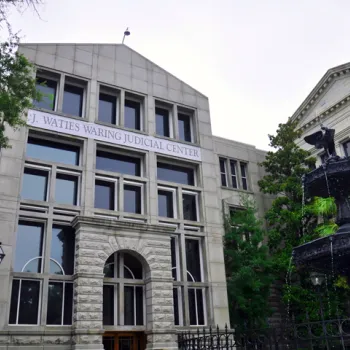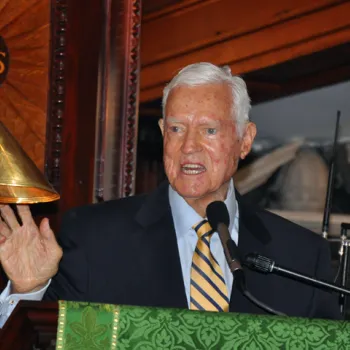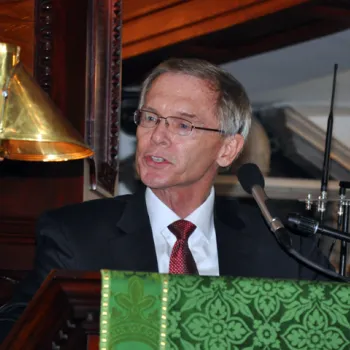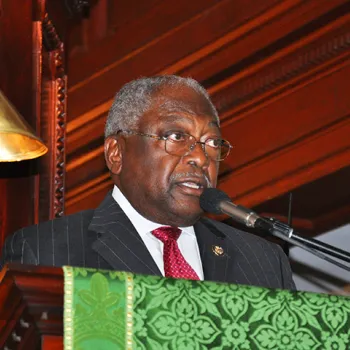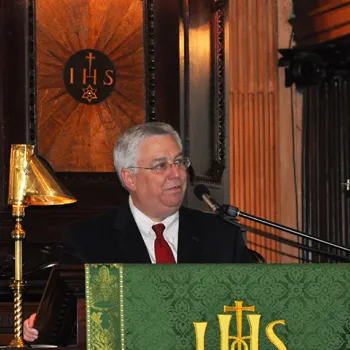The remarkable resurrection of a once-forgotten judge’s civil rights legacy was completed Oct. 2, when U.S. Senator Lindsey Graham (R-SC) and former Senator Ernest “Fritz” Hollings joined the Judiciary in renaming the former Hollings Judicial Center in Charleston, South Carolina, the J. Waties Waring Judicial Center.
The judicial center previously was named for Hollings, who served in the Senate from 1966 to 2005. Judiciary representatives at the renaming included all U.S. district judges for the District of South Carolina, Chief Judge William B. Traxler Jr., of the U.S. Court of Appeals for the Fourth Circuit, and Jean Hoefer Toal, chief justice of South Carolina’s state Supreme Court.
The ceremony was moved from outside the courthouse to the nearby St. Michael's Episcopal Church, in response to an approaching heavy-rain system that eventually flooded much of South Carolina and forced the closure of Charleston's federal courthouse for two days, Oct. 5-6.
U.S. District Judge Richard M. Gergel told the audience that Waring’s ground-breaking rulings against segregation in the 1940s and early 1950s provoked “constant death threats.” Charlestonians widely shunned Waring, and only gradually over six decades has his legacy been seen in a new light.
“This extraordinary story of courage, integrity and commitment to the rule of law has been told and retold over the years, eventually coming to this remarkable day when Charleston, South Carolina and America reclaim Judge J. Waties Waring as their own,” Gergel said. “For those of us who do the work of justice in this courthouse, it will be an enduring honor to work in the building now known as the J. Waties Waring Judicial Center.”
As a U.S. district judge, Waring upheld equal pay for African American teachers, ended white-only party primaries and penned a fiery 1951 dissent in Briggs v. Elliott, a school desegregation case that eventually became a part of Brown v. Board of Education. “Segregation in education can never produce equality,” Waring wrote.
Waring’s career was the subject of a 2011 legal education program. According to Gergel, who organized the program and now sits in Waring’s courtroom, Hollings was in attendance.
Hollings had his own positive legacy in ending desegregation. As governor, he urged legislators to accept the admission of the first African American student into Clemson University. “As we meet, South Carolina is running out of courts,” Hollings declared in 1963. “This General Assembly must make clear South Carolina's choice, a government of laws rather than a government of men.”
Even after a courthouse statue was dedicated in Waring’s honor in 2014, Gergel said, Hollings pressed Congress to remove his own name from the Charleston courthouse, and replace it with Waring’s. With the state’s entire congressional delegation in support, the change was approved this year.
“Asking to have one’s name removed from a courthouse is unprecedented,” Gergel said. “Senator Hollings told me, ‘They put my name on the courthouse because I got funding for it. I want to put it in the name of the guy who did justice here.’ ”
Subscribe to News Updates
Subscribe to be notified when the news section is updated.

